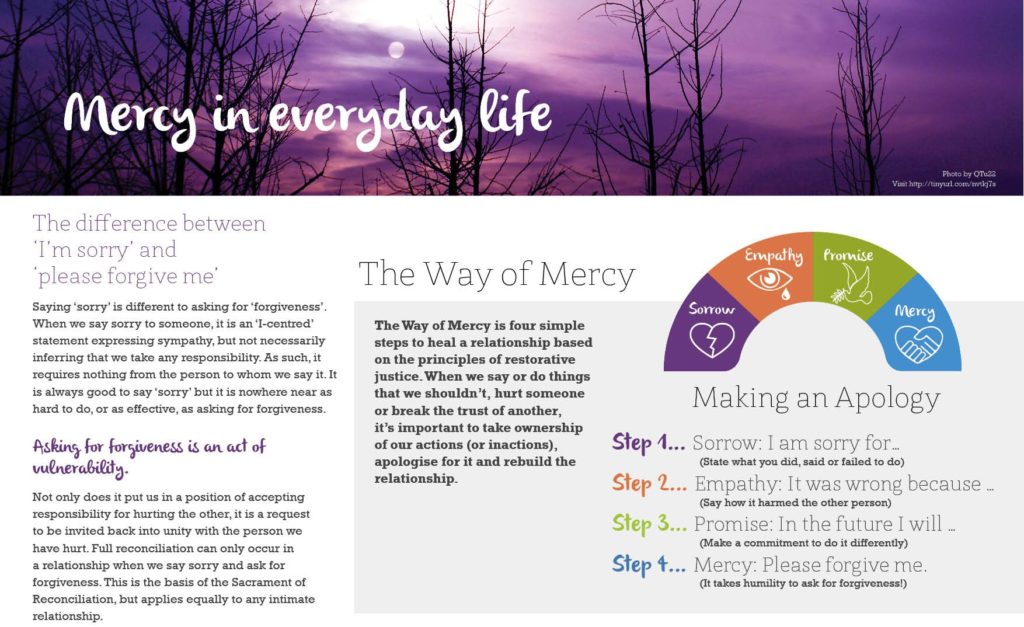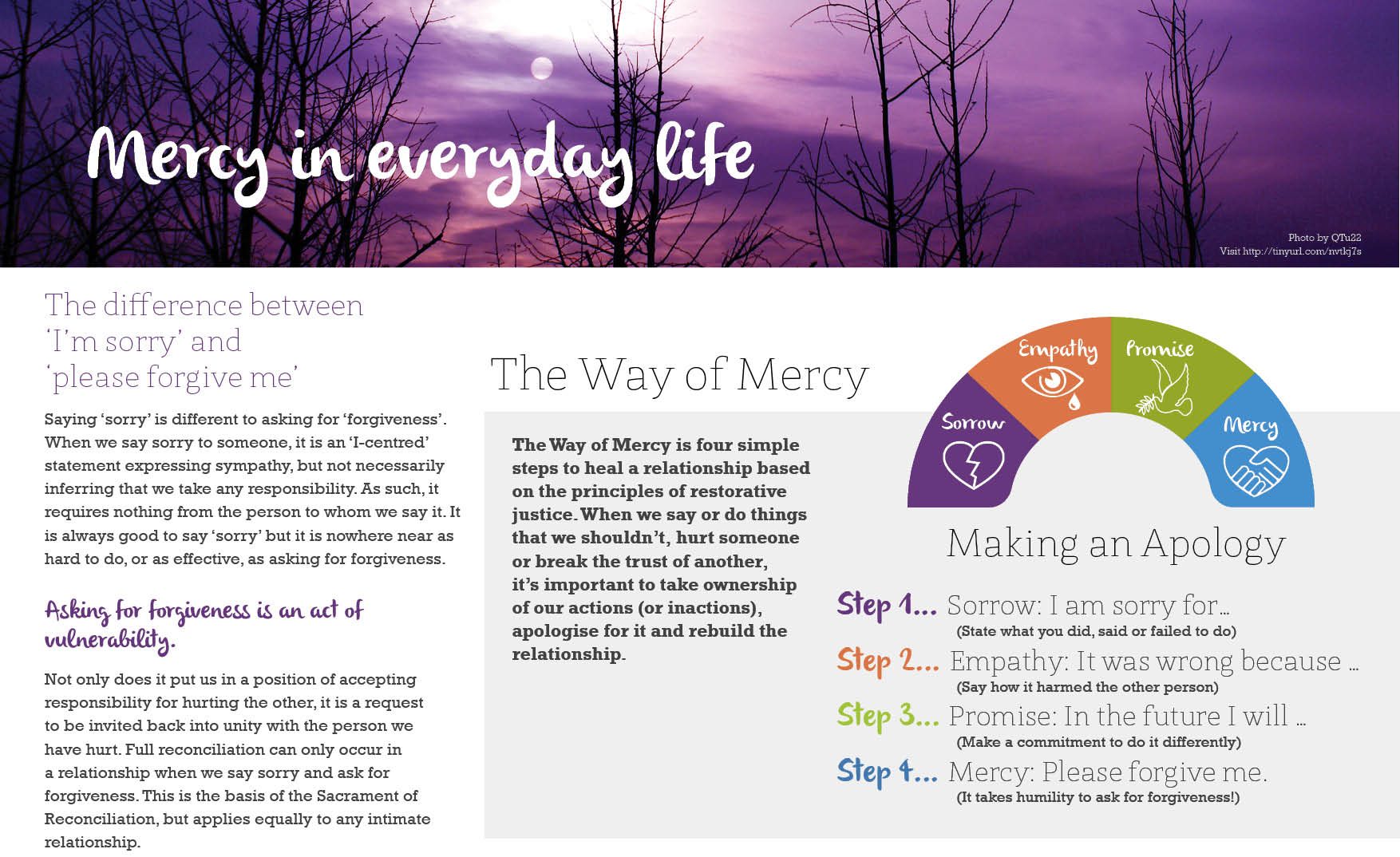Mercy in Everyday Life

The Way of Mercy
When we say or do things that we shouldn’t, hurt someone or break the trust of another, it’s important to take ownership of our actions (or inactions), apologise for it and rebuild the relationship. The Way of Mercy is a simple four-step process for families, couples, singles, religious, teachers, friends etc to use to heal a relationship that is broken or hurt. It’s based on the principles of ‘Restorative Justice’.
Discussion Questions:
- Think of a positive memory of family life from your childhood. How has that incident impacted you throughout your life?
- Think of a time when you hurt someone in your family. How did you respond? After listening to this talk, how could you have done it differently?
- Describe a time when you were hurt, and the person apologised to you. How do you feel about that person now?
 Step 3: Promise.
Step 3: Promise.
“In the future I will …(say how I will to do it differently)”.
The word ‘repent’ in Hebrew is ‘teshuva’ and is derived from the verb ‘to return’. Repentance is about more than being sorry, it is about committing to change. This promise step is crucial if we are to have any chance of avoiding the same error in the future.
It is also critical to rebuilding trust. How can the other trust us, if we show no indication that we intend to change our ways?
 Step 4: Mercy.
Step 4: Mercy.
“Please forgive me”
It takes humility to ask for forgiveness for it acknowledges without reservation that we were wrong. It requires vulnerability because we hand all the power to the other: they now have the choice to forgive or withhold it.
If we follow all the steps, the chances are that their heart will already be soften towards us and he/she will willingly forgive. But sometimes, they are not ready. Perhaps they need more time or perhaps the weight of the pain is too big for them to set aside at that moment. If they don’t grant forgiveness, we leave our apology as a free gift for them. Do not become bitter or demanding: For forgiveness to be authentic it must be freely given without coercion, threats or manipulation.
If they do grant forgiveness, receive it as a gift of great value and honour their trust by striving to follow through on your promises of repentance.
The Way of Mercy as we have just described can be used by anyone, even those without faith in Jesus Christ. However, for Christians, walking the way of mercy with Jesus, calling on him to guide and support you is like turbo charging the process. Jesus wants us to forgive and be reconciled to each other so before you apologise with the way of mercy, take a few moments to ask Jesus for help.
Printable Handout
Download your free printable resource on “Making an Apology” which can be reproduced for non-commercial purposes with our compliments.

Download The Way of Mercy Printable
